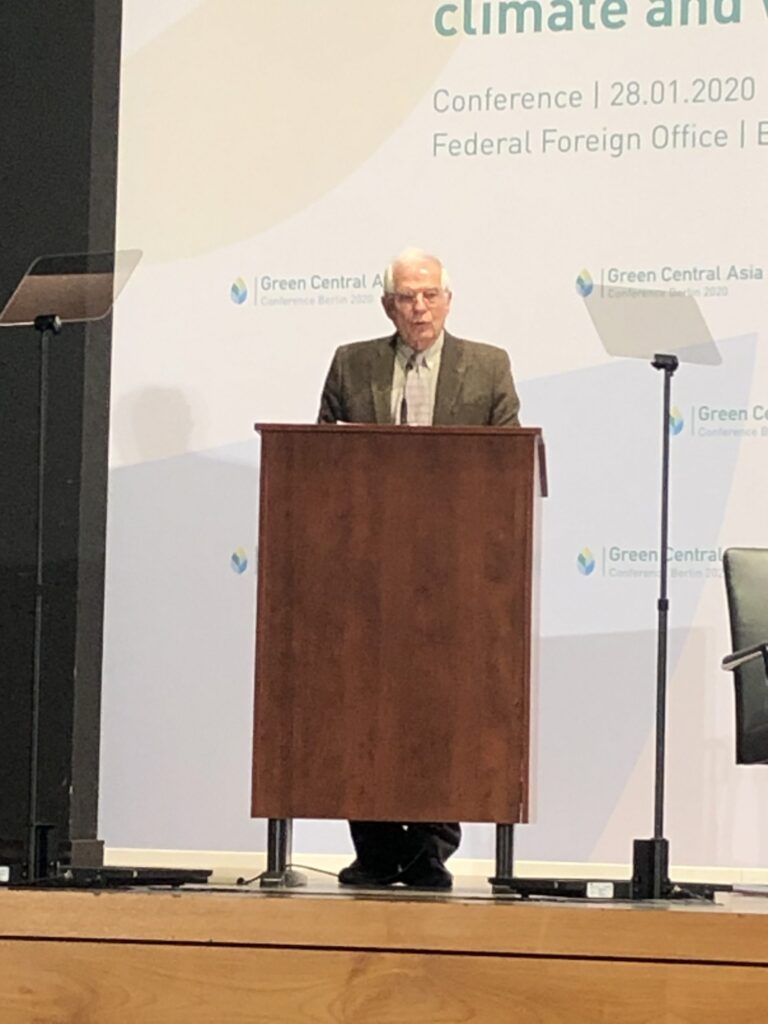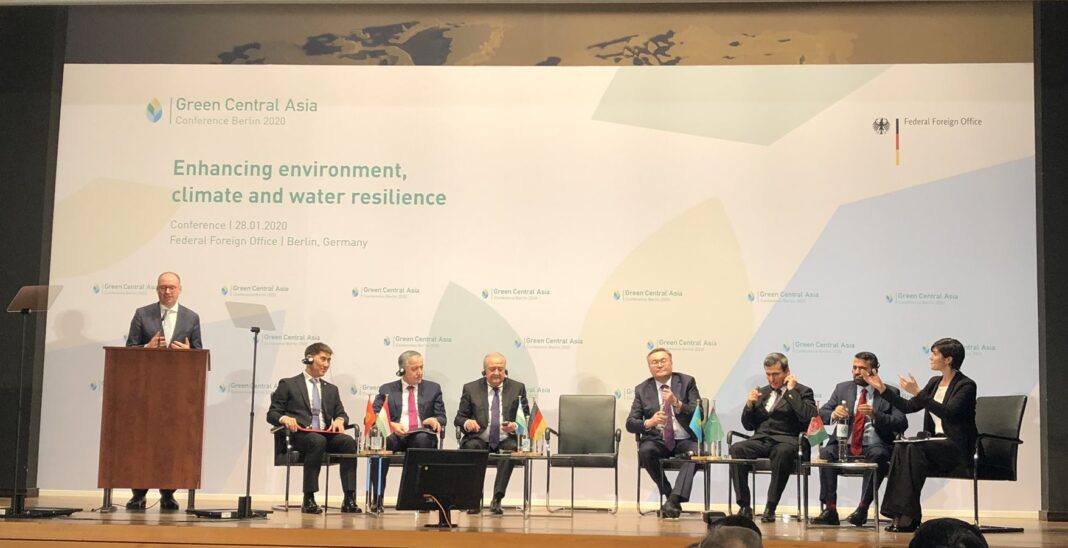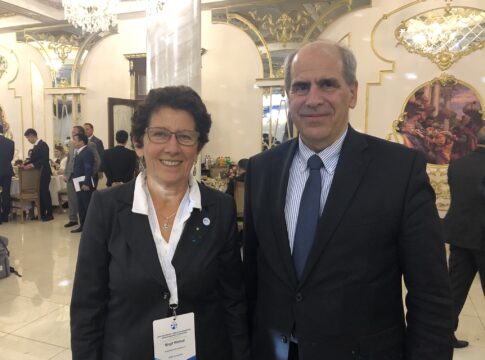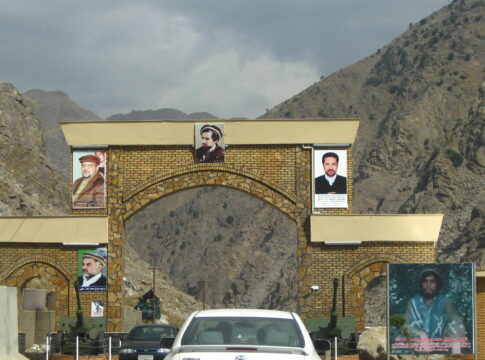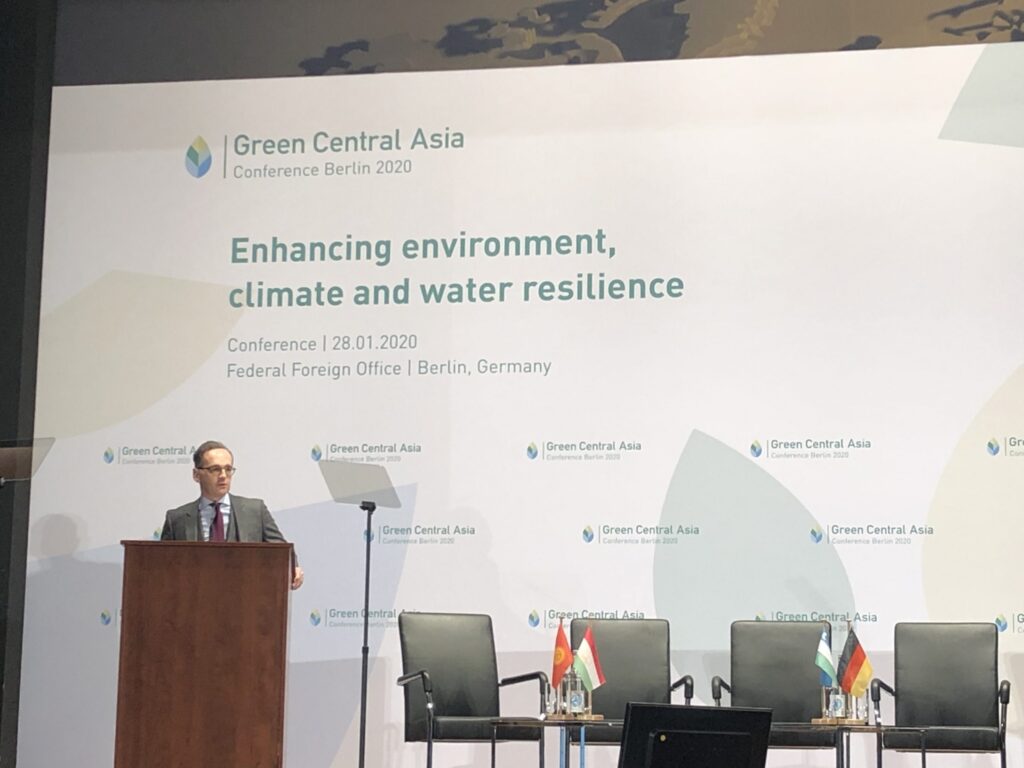
Green Central Asia – Conference in Berlin with 5+1 Foreign Ministers from Central Asia took place in Berlin on January 28, 2020. It was a speccial occation to find all five foreign ministers from Central Asia in one place, plus the deputy FM from Kabul, Afghanistan! They all have great hopes for cooperation to tackle pressing issues related to climate, dessertification and climate change. Water is extremely scarce in most parts of Central Asia. Technologies from other countries such as Germany, especially for water management, may offer new ways. Green – meaning not only environmentally friendly, but also sustainable and stable.
The conference brought together the foreign ministers of the Central Asian states and Afghanistan, as well as more than 250 participants from governments, international organisations, the private sector, civil society, and the scientific community to discuss the climate and security challenges facing Central Asian countries and Afghanistan, and how the Green Central Asia initiative can contribute to addressing them. During the conference, Germany, Kazakhstan, Kyrgyzstan, Tajikistan, Turkmenistan, Uzbekistan and Afghanistan signed a “Joint Declaration of Intent” on cooperation in the field of climate and security in Central Asia and Afghanistan within the framework of Green Central Asia.
Will central Asia turn green? Well, all five FMs of central Asia plus the Deputy Foreign Minister from Afghanistan signed the contract in Berlin to get consultation and technologies for their countries to tackle some of the major challenges of the region. They hope to be enabled to meet the challenges of climate change. But much more is needed. For sure, it will be important to get information to the people in countries, to spead the news.
In his opening speech, German FM Heiko Maas Adress stressed that we are all sitting in one boat. Joint efforts and actions are needed. Josef Beuel, EU High Representative for External Affairs and Security, from Brussels added on to the message and also Peter Burian, EU Special Representative for Central Asia, gave an outline of the future.
Central Asia has a vast potential for renewable energy from wind and sun. At the same time, it is obvious that the region will need much more energy very soon. The region is on the brink of a lively economic development. Several options are still open. But low carbon growth should be in the interest of all.
There are good chances that the newly signed contract will be a win for all sides. Central Asians can get a lot of support for a good and low carbon growth for the development in Central Asia. For Europe and especially Germany the contract will provide great opportunities to invest in the region, in new technologies, at a time when there is not many business opportunities in Europe.
It will still be a huge challenge to set up a solid basis for growth, and to remain independent, and to convince people of a lifestyle that does not copy the mistakes of Western countries.
Green Energy can bring independence from technologies that only one country holds, or ressources that are scarce. Economic growth with independent green energy production offers a high level of soveignty – economics and politics linked to it. And in case of Central Asia: Due to the vast amount of space, sun and wind, energy prices can be very low, thereby attracting new businesses.
